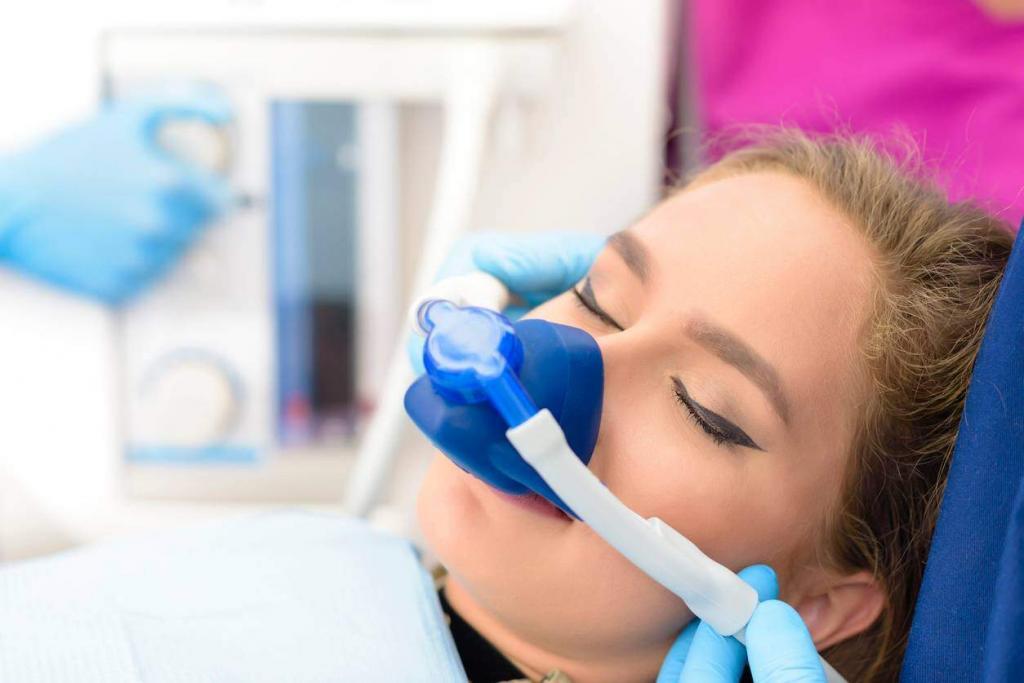
Sedation dentistry is becoming more and more popular as people want to receive oral health treatment, but are still struggling with dental anxiety. Even if today’s dental offices are friendly and very customer-oriented, many individuals still experience fear when going to the dentist, which is often preventing them from getting the needed treatment.
Let’s talk more about sedation dentistry, laughing gas, the myths surrounding it and what to actually expect when you are going through sedation.
Who Is Sedation Dentistry Meant for?
As said before, sedation dentistry comes as an aid for people with anxiety to get the dental treatment they need, without experiencing a new emotional trauma. Sedation deals with the stress and anxiety felt by people when sitting in the dentist’s chair.
Other people who benefit from sedation dentistry are those who cannot sit still for long, like babies and toddlers or people with motory impediments. Patients who need extensive procedures might also benefit from sedation, as it makes the time go faster and keeps them calm the whole time.
Depending on how severe your anxiety is, how long the procedure is and what is the medical history of the patient, the doctor will recommend the proper level of sedation. For routine or simple procedures that don’t need much time, the dentist may prescribe laughing gas for sedation purposes.
What Is Laughing Gas?
Laughing gas is the common name of nitrous oxide, a gas that is used in dentistry to mildly sedate patients. It is administered through a breathing mask and it keeps the patient calm, even in a good mood, throughout the procedure.
Nitrous oxide works by triggering the production of dopamine in the brain, which makes you relaxed and euphoric. People will feel happy while under the laughing gas, which might get them to laugh if they are particularly giddy at that moment. But it’s not a general rule.
What Are the Effects of Laughing Gas?
Nitrous oxide will have an immediate effect on the patient, making him calm and euphoric, but conscious all the time. It may induce mild hallucinations and sound distortion, which can be entertaining for people under its effect. Unfortunately, it could also have a few side effects like headaches or dizziness, but all the effects of laughing gas will generally go away immediately after the procedure.
How Should You Prepare for a Procedure Under Inhalation Sedation?
Laughing gas induces mild sedation and its effect lasts for a very short time. It is recommended for a large group of patients, with minimal risks. It doesn’t need much preparation before the procedure, but it’s recommended that you don’t eat a large meal just before the dentist appointment. Speak with an experienced dentist about the benefits and risks of laughing gas.
Laughing gas may be depicted as a hilarious dentist prop, but it’s not always laughter-inducing. What it does give you is a calm feeling that will help the dentist treat you without causing too much discomfort.
Call Us Today
The first two board-certified Dentist Anesthesiologists in the state of Missouri.
